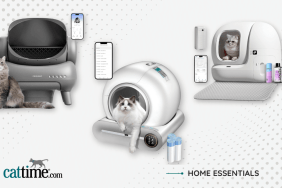Question:
My veterinarian requested that I bring my dog in twice a year for an exam. Is that necessary?
Answer:
How often your pet is examined is subject to many variables that only your veterinarian would be qualified to answer, since they know your pet’s health, any diseases endemic to your area and any special circumstances. The rationale for annual or semi-annual suggested veterinary visits is due to several factors.
1. Pets age faster than humans. An average dog ages approximately seven years to every one year for humans. Larger dogs age faster, while cats and small breed dogs age a bit slower. Certainly it would not be good for us to only have a physical exam every seven years.
2. Pets cannot tell us when they do not feel well; you have to notice a change in their behavior, eating habits, water intake or look for other abnormal symptoms to detect medical problems. By the time symptoms appear, the problem is usually more advanced and more difficult to treat.
3. Pets, especially felines will hide their symptoms because Mother Nature has built into them a survival mechanism. If animals in the wild show disease or illness they will be preyed upon first. Predators, in nature, can tell which animals are having a problem and certainly go after the easier prey. Although our pets have been domesticated for several thousand years, they still have that natural tendency to hide symptoms of illness.
4. Our pets want to please us and are very responsive to us. Pets will overcome pain or feeling bad to respond, something humans tend not to do. We tell our family when we feel bad and we stay home from work or school, we do not play or exercise. In fact we tend to not interact when ill. Pets will respond to us, even when they do not feel like it, therefore you may be unaware that a medical problem is present for some time.
5. Older pets and pets with a history of medical problems need exams more often than young healthy pets as a general rule.
6. Breeds with known predispositions for certain diseases or hereditary defects may need health screening more often.
7. Pets with any chronic medical conditions such as kidney or heart disease, chronic pancreatitis, diabetes, history of cancer, liver, thyroid, or other metabolic disease may need exams even more often.
The reason for exams when there are no symptoms present is to determine the health of your pet, to compare to prior exams, and to detect disease early. Early detection of disease is critical to a successful outcome and will save you money in the long run. Remember the old saying regarding prevention: “You can pay me now or pay me more later.” This saying holds true for your health and your pet’s health.









